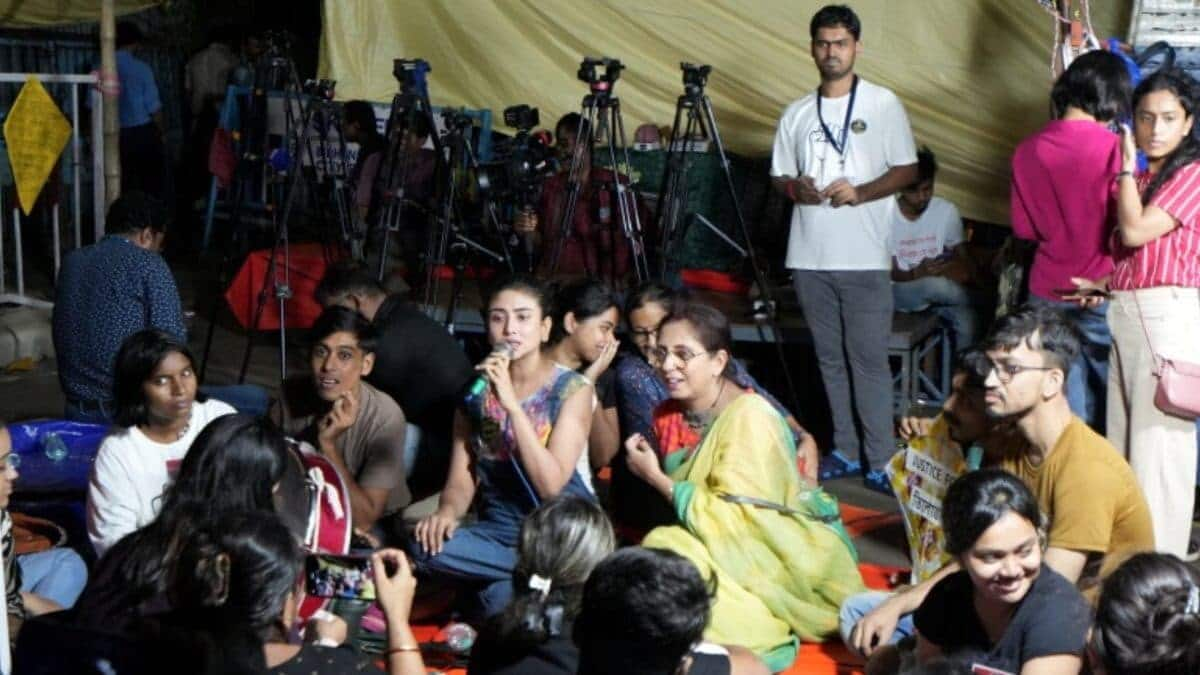
Kolkata doctors resume work, but some services will stay shut
What's the story
After a 42-day-long strike, junior doctors in Kolkata on Thursday night announced that they will resume emergency services from Saturday.
However, the protest has not been completely called off.
The doctors clarified that they will continue to abstain from serving out-patient departments (OPDs) across government hospitals in the city.
This ongoing protest is part of their demand for justice following the rape and murder of a trainee doctor at RG Kar Medical College and Hospital on August 9.
Continued agitation
Protesters demand justice, threaten bigger movement
The West Bengal Junior Doctors's Front, which has been leading the protest, stated that they will now shift their dharna from outside Kolkata's Swashthya Bhavan to the Central Bureau of Investigation (CBI) office.
They expressed satisfaction with the progress made so far but warned of a larger movement if their demands are not fully met within a week.
"In light of the fact that majority of our demands were being met, we view this as an initial victory," they said.
Protest update
Doctors' statement highlights initial success, future plans
"Due to our movement, we have been able to halt the heinous conspiracy to cover up the incident and the malicious attempts to undermine the investigation," they added.
They also announced plans to withdraw their protest from the Health Department and return to medical colleges to discuss essential services procedures.
"We will...discuss the SOP for essential services and will join the essential services from the day after tomorrow [Saturday], while our strike on other issues will continue," they clarified.
Official actions
Government's response to doctors' demands
In response to the protests, West Bengal Chief Minister Mamata Banerjee agreed to remove certain officials from their roles. She appointed Manoj Kumar Verma as the new Kolkata Police chief, replacing Vineet Goyal.
Two senior health department officials were also removed.
The directives issued by the chief secretary on Thursday evening include measures such as adequate on-duty rooms, washrooms, CCTVs in hospitals, and a security audit in all medical colleges and hospitals by a retired Indian Police Service (IPS) officer.
Safety enhancements
Additional measures taken by the government
Other measures include making internal complaint committees in hospitals functional, ensuring adequate police deployment in health facilities, and establishing a centralized helpline for the safety and security of healthcare professionals.
A panic button alarm system, a centrally monitored real-time bed availability information system, centralized referral system, filling up of vacancies and a grievance redressal system have also been proposed.
These directives were issued following a meeting between the junior doctors and top officials at Nabanna on Wednesday evening.